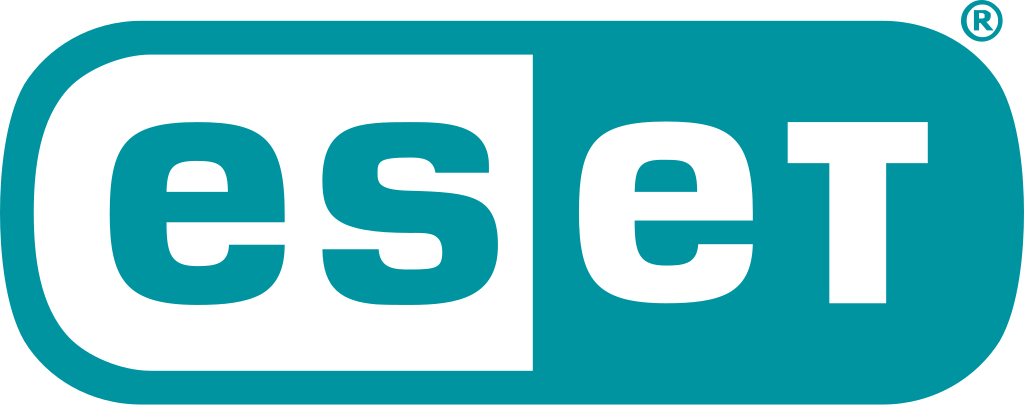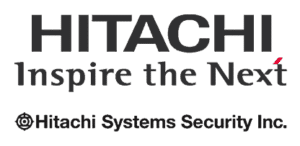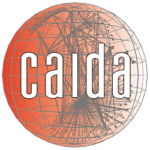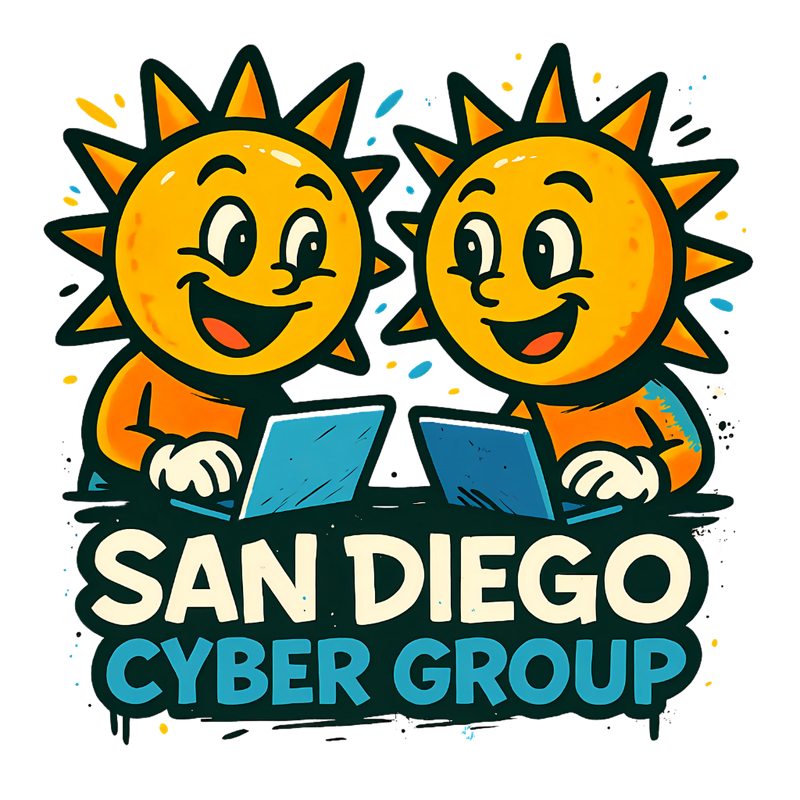
November 4 @ 09:00 – November 7 @ 16:00
APWG eCrime 2025 examines essential factors for managing the impacts of the global cybercrime plexus to secure IT users, commercial enterprises, governments, critical infrastructures, and operational technologies. eCrime 2025 will be the 20th annual peer-reviewed, publishing symposium hosted by APWG, this year focusing on AI and the growing menace of cyber-physical threats.
eCrime Venue: San Diego, California
Delegates’ Accommodations: Coronado Bay Resort

Click Here for APWG eCrime HOTEL ACCOMMODATIONS

The IEEE Computer Society’s Technical Community on Security & Privacy Is Standing as Technical Sponsor of the APWG’s 2025 Symposium on Electronic Crime Research (eCrime 2025)
Click Here for Abstracts of 2025's Accepted Peer-Reviewed Papers
Post-Symposium Surf Outing Friday Morning at 8 AM Sign-Up Link For: Coronado Surfing Academy |
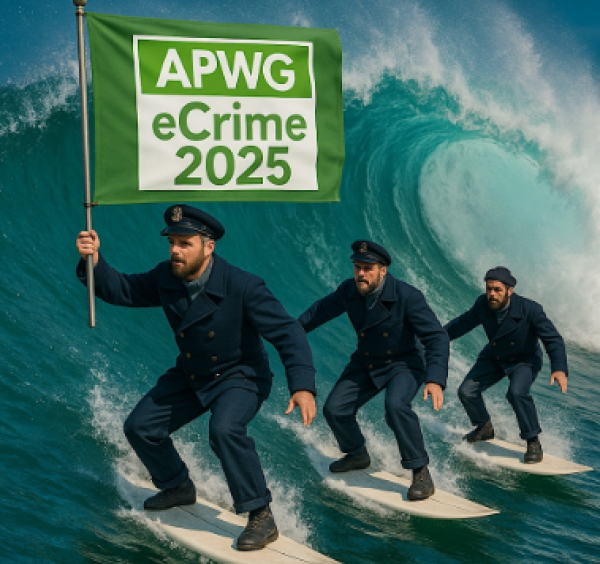
| Counter-Cybercrime Surf Team Rocks San Diego APWG Surf School - November 7 / 8 AM - 9 PM Get ready to catch some gnarly waves at the Coronado Surfing Academy! Join AegisAI CEO Cy Khormaee for a day of sun, surf, and fun with experienced instructors - all levels welcome. Rental and instruction fees apply. |
Programmed Sessions:
Monday, November 3Training Sessions for Cybercrime Interveners

12:00-2:30 PM / Room Assignment: Britannia
Can LLMs Outsmart Phishers? A Reality Check on AI Defenses
Aaron Escamilla, NetSTAR / ALPS System Integration Co., LTD

3:00-5:30 PM / Room Assignment: Britannia
How to Build Agentic Systems to Automate Web Security
Mohamed Nabeel, Palo Alto Networks

3:00-5:30 PM / Room Assignment: Cambria
Practical API Integration: Connecting Applications to the eCrimex eXchange Data Clearinghouse
Carlos Ramirez, APWG Engineering
Click Here for Abstracts of Training Sessions for eCrime 2025
Monday Evening Pre-Conference Reception: Sunset Terrace 7-9 PM |

TUESDAY, November 4eCrime's 20th Year at the Cybercrime Frontier
| 9:00 | Introductions and appreciations |
AI's Impact at the Cybercrime Frontier
Moderator: Ebrima Ceesay, eCrime 2025 Program Chair. Mastercard Vice President of Infrastructure, Platform Automation & Data Science
| 9:15 | Panel: Charting the Evolutionary Arc of AI As Outlaw Operative & Cybercrime Watchman |
Moderator: Ebrima N. Ceesay, Vice President of Infrastructure, Platform Automation & Data Science, Mastercard Dr. Saeed Abu Nimeh, Founder/CTO, Augur Security Zara Perumal, CTO/Co-Founder of Overwatch Data Cy Khormaee, Founder/CEO, AegisAI Security Kevin Tian, Founder/CEO, Doppel Fred Heiding, Postdoctoral Fellow, Harvard Kennedy School |
| 10:30 | Coffee Break |
| 11:00 | AI-Enabled Phishing: Is the Sky Really Falling? |
| Crane Hassold, Principal Security Research Lead, Microsoft |
| 11:30 | AI-powered Spearphishing at Scale |
Cy Khormaee, Founder/CEO, AegisAI Security |
| 12:00 | AI Under Siege: Dissecting the ReAct Framework Attack Surface |
| Aditya K Sood, VP of Security Engineering and AI Strategy, Aryaka |
| 12:30 | Lunch Break |
|
Mapping Cybercrime's Fraud EcosystEM
Moderator: Steve Santorelli, VP Community, Team Cymru
| 1:30 | Phishing Landscape 2025: Phishing’s Gotten Worse, and Here’s Why |
| Greg Aaron, President, Illumintel, Inc. / APWG Senior Research Fellow / Associate, Interisle Consulting Group |
| 2:00 | Infrastructure Patterns in Toll Scam Domains: A Comprehensive Analysis of Cybercriminal Registration and Hosting Strategies |
| Morium Akter Munny (California State University San Marcos) |
| 2:20 | Outsmarting Crimebots: How Graph Analytics and Fingerprints Beat Static Rules |
Aaron Escamilla, Cyber Security Engineer NetSTAR / ALPS System Integration Co., LTD |
Grids, Infrastructure & Cybercrimes of Scale
Moderator: Laurin Weissinger, eCrime 2025 General Chair
| 2:50 | Inside China’s Power Grid Hacking Research |
Erika Langerová, Head of Cybersecurity Research České Vysoké Učení Technické V Praze Univerzitní Centrum Energeticky Efektivních Budov |
| 3:20 | BADBOX 2.0: The Largest Botnet of Infected CTV Devices Ever Uncovered |
Gavin Reid, CISO HUMAN Security / Satori Threat Intelligence & Research Team Stewart Garrick, Special Projects Manager The Shadowserver Foundation |
| 3:50 | SAETI: State-Actor Empowered Threat,Intelligence... A Good or a Bad thing? |
Righard Zwienenberg, Senior Research Fellow, ESET Eddy Willems, Evangelist, WAVCi |
| 7:00 | APWG eCrime Speakers' Dinner at a location to be announced |
 | eCrime 2025's speakers' dinner will convene after the first day's proceedings to thank our speakers for advancing our delegations' understanding of the cybercrime experience |
WEDNESDAY, November 5Day 2: Cybercrime Fighting in the AI Epoch
The New New Cybercrimes and Their Consequences
Moderator: Miranda Bruce, Lecturer in Cyber Security, UNSW Canberra
| 9:15 | Quantum-Enabled Cybercrime: A Portfolio Analysis of Cryptocurrency Theft and Double-Spending |
Zhen Li (Albion College) Qi Liao (Central Michigan University) |
| 9:35 | Unicorns in the Wild West: Empirical Analysis of Cybercrime Facilitated by Cryptocurrencies |
Arghya Mukherjee (The University of Tulsa) |
| 10:55 | Short Path to Phishing: Identifying Misused URL Shortening Services in the Wild |
Zul Odgerel (Université Grenoble Alpes / KOR Labs) Yevheniya Nosyk, Jan Bayer, Sourena Maroofi, Louis Bedeschi (KOR Labs) Andrzej Duda (Université Grenoble Alpes) Maciej Korczyński (Université Grenoble Alpes) |
| 10:15 | Coffee Break |
Isolating Cybercrime Signal in an Epoch of Pandemic Noise
Moderator: Jeff Debrosse, CEO, Sympler LLC
| 11:00 | Lost in Translation: Analyzing Non-English Cybercrime Forums |
| Mariella Mischinger (IMDEA Networks and Universidad Carlos III de Madrid) |
| 11:20 | Detecting Malicious Domain Registration Batches: Patterns, Prevalence, and Security Implications |
| Sam Cheadle, Carlos Hernandez Ganan, Siôn Lloyd, Samaneh Tajalizadehkhoob (ICANN) |
| 11:40 | SHADOWBOX: A Low-Artifact Framework for Analyzing Evasive Cyber Crimes |
| Javad Zandi, Lalchandra Rampersaud, Amin Kharraz (Florida International University) |
| 12:00 | Lunch Break |
Crimebot v. Robocop: Defensive AI at the Parapets
Moderator: Saeed Abu-Nimeh, Founder / CTO, Augur Security
| 1:30 | "Send to which account?” Evaluation of an LLM-based Scambaiting System |
Hossein Siadati (AI Research, Cybera Global Inc.) Haadi Jafarian (Department of Computer Science and Engineering, UC Denver, USA) Sima Jafarikhah (Department of Computer Science, UNCW, Wilmington, USA) |
| 1:50 | Defense of the Clones: Securing Web Applications with Automatic Honeypot Generation and Deployment |
| Billy Tsouvalas, Nick Nikiforakis (Stony Brook University) |
| 2:10 | Contextual Classification of Cybercriminal Posts Using Large Language Models: A Comprehensive Study on Tech Support Scam Marketplaces |
Raghavendra Cherupalli, Yi Ting Chua, Weiping Pei, Tyler Moore (University of Tulsa) Gary Warner (UAB (University of Alabama at Birmingham) |
| 2:30 | Family Ties: A Close Look at the Influence of Static Features on the Precision of Malware Family Clustering |
Kevin van Liebergen, Juan Caballero (IMDEA Software Institute) Antonino Vitale, Simone Aonzo, Davide Balzarotti (EURECOM) Savino Dambra (Gen Digital) Platon Kotzias (BforeAI) |
| 2:50 | ScanWars: (A Multi-network Approach to Detecting and Analyzing) The Rise of Scanning Activity |
Beliz Kaleli [corresponding author], Fang Liu, Oleksii Starov, Tony Li (Palo Alto Networks) Manuel Egele, Gianluca Stringhini (Boston University) |
| 6:00-8:00 | eCrime 2025 Reception Dinner / Bay Terrace |
 |
THURSDAY, November 6Day 3: Human Factors & Domestic Contexts
Moderator: Aimee Larsen-Kirkpatrick, President, STOP. THINK. CONNECT. Messaging Convention
| 9:00 | AI Will Increase the Quantity - and Quality - of Phishing Scams |
| Fred Heiding, Postdoctoral Fellow, Harvard Kennedy School |
| 9:20 | PANEL: Limits of User Security Burdens in a Pandemic of Nearly Imperceptible Falsity & Fraud |
Erich Kron, CISO Advisor, KnowBe4 Fred Heiding, Postdoctoral Fellow, Harvard Kennedy School L. Jean Camp, Bank of America Distinguished Professor in Security Analytics, University of North Carolina at Charlotte
Moderator: Aimee Larsen-Kirkpatrick, STOP. THINK. CONNECT. Messaging Convention
|
| 10:20 | Beaver: Estimating Future Risks at Scale in Real-World Deployments |
Jessica Balaquit, Marco Balduzzi, Roel Reyes, Ryan Flores (Trend Micro Research) |
| 10:40 | Catch Me If You Scan: A Longitudinal Analysis of Stalkerware Evasion Tactics |
| Anahitha Vijay, Luis A. Saavedra, Alice Hutchings (University of Cambridge) |
| 11:00 | Department-Specific Security Awareness Campaigns: A Cross-Organizational Study of HR and Accounting |
Matthias Pfister, Irdin Pekaric (University of Liechtenstein) Giovanni Apruzzese (University of Liechtenstein, University of Reykjavik) |
| 11:20 | Just in Plain Sight: Unveiling CSAM Distribution Campaigns on the Clear Web |
Nikolaos Lykousas (Data Centric) Constantinos Patsakis (University of Piraeus) |
| 11:40 | Safeguarding Futures: Exploring the Impacts of Generative AI on Child Online Protection in Nepal |
Aarati Raghuvanshi, ChildSafe.Net and UNICEF |
| 12:00 | Social Engineering / Second Edition |
Righard Zwienenberg, Senior Research Fellow, ESET Eddy Willems, Evangelist, WAVCi |
| 12:20 | LUNCH BREAK |
THURSDAY's proceedings continueCybercrime's Marketplaces & Finances
Moderator: Roman Y. Sannikov, Constellation Cyber
Mapping the Cybercrime Marketplace
| 1:45 | Uncovering the Trust Signals Supporting Telegram’s Cybercrime Economy |
Roy Ricaldi, Luca Allodi (Eindhoven University of Technology) Tina Marjanov, Alice Hutchings (University of Cambridge) |
| 2:05 | Is Ransomware an Economically Distinct Attack Type? An Event Study of Market Reactions |
Ambarish Gurjar, Dalyapraz Manatova, Benjamin Staples, Spencer Chambers, Jean Camp (Indiana University Bloomington) |
| 2:25 | COFFEE BREAK |
| Trade Fair Opens |
Cybercriminal Finance & Crypto as Laundering Engine
| 3:15 | From Lamborghinis to Ladas: Empirical Analysis of LockBit's Business Operations |
Ian Gray (New York University, Flashpoint) Dalyapraz Manatova (Indiana University Bloomington) Kris Oosthoek (Delft University of Technology) Damon McCoy (New York University) |
| 3:35 | Inside LockBit: Technical, Behavioral, and Financial Anatomy of a Ransomware Empire |
Felipe Castaño, Francesco Zola (Vicomtech) Constantinos Patsakis (University of Piraeus) Fran Casino (Rovira i Virgili University) |
| 3:55 | The Dark Art of Financial Disguise in Web3: Money Laundering Schemes and Countermeasures |
Hesam Sarkhosh Sarkendi, Uzma Maroof, Diogo Barradas (University of Waterloo) |
THURSDAY NIGHT CHALK TALKWIPs, Demos, Collaboration Opportunities & Wild Ideas Worthy of Domestication

Join APWG eCrime delegates and industrial correspondents for a chalk talk to discuss works in progress, collaborations opportunities, R&D ideas - and to witness first hand demos of working technologies that may soon be managing the chaos of the cybercrime frontier.
5:30 PM / Loews Coronado Bay / Britannia / Cambria Room
 | Your Chalk Talk Moderators:Dr. Stefan Savage (UCSD) and Darin Andersen (Principal at The Antara Group, Founder at NXT Robotics, MetropolisIQ, Middlemarch Fund) |  |
The APWG’s Symposium on Electronic Crime (eCrime) invites: cybercrime research demonstrations; works in progress and research proposals that exhibit important results and suggest applications; and telling comparative analyses from across the cybercrime and anti-abuse landscape. | |
Victim as a Service: Designing a System for Engaging with Interactive ScammersDaniel Spokoyny, Beesafe.ai and Nikolai Vogler, UCSD.
Format: Working Demo (10–15 minutes) / Talk / Research In this talk, we describe the motivation, design, implementation, and experience with an LLM-based system that automates long-term, conversational engagement with online scammers such as pig butchering operations, across a number of media and communications channels. Increasingly common and the source of significant public losses (at least $75B by one recent study), their long-term conversational nature makes these scams extremely challenging to investigate at scale, requiring systemic artificial engagement.
Rockin’ APWG eCrime eXchange Data on an MCP ServerCarlos Ramirez, APWG Engineering
This groundbreaking demo shows how ontology-aware JSON lets users query APWG eCX data through MCP semantically - for the first time in front of any delegation.
Cross-Platform Cybercrime Signal Detection: Demonstrating OSINT Pivot Analysis using |
Click Here for eCrime 2025 Chalk Talk Call for Presentations
FRIDAY: POLICY ROUNDTABLERoundtable on Measurement, Transparency, and Cyber Integrity Policy
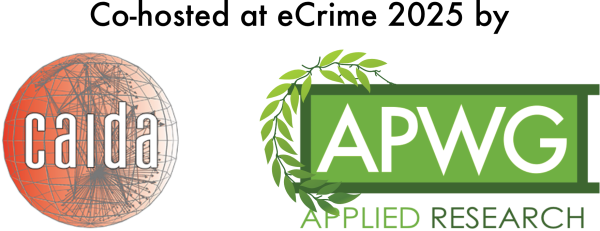
Moderators: KC Claffy, CAIDA & Laurin Weissinger, UC Berkeley
9:30 AM – 1 PM / Loews Coronado Bay / Britannia / Cambria Room
Objective:
To identify practical paths toward greater rigor and openness in measuring cybercrime phenomena—balancing the needs of research, industry, and policy.
Timing:
9:30 – 9:40 AM — Welcome and Framing
- Purpose: Introduce participants, clarify goals, and situate the discussion within current APWG efforts and the conference presentations
- Prompt:
- Why does measurement and transparency matter now?
What are today’s biggest coordination or trust barriers?
9:40 – 10:15 AM — Scene-Setting: The Landscape of Measurement and Transparency
- Short Inputs (5-7 min each) from:
- CAIDA/UCSD Sysnet: Research-driven measurement—limits and gaps.
- Industry telemetry, operational sensitivities, and disclosure.
- The discipline of technical diplomacy in establishing specification, convention & standardized vocabularies and taxonomies on a global basis
- Gen XYZ, Jocelyn Hanc: Red Herring statistics in TLD reputation measurement & the downstream effect on positive growth
- APWG: Coordination and data-sharing across communities in cyber—and in comparison to other sectoral exchanges for risk management and research.
Moderator summary: Cross-cutting observations—where measurement and transparency intersect.
10:15 – 10:40 AM – Break
10:40 – 11:40 AM — Roundtable I: Measurement in Practice
Focus: How do we measure what matters?
- What types of data (DNS, abuse feeds, sinkholes, telemetry) are most informative?
- How can relevant anti-abuse communities define ontological/epistemological concepts (e.g. what is abusive), methodologies, and measurement approaches in ways that can be shared by all counter-cybercrime stake-holding communities?
- How do organizations validate and reconcile conflicting datasets?
- What incentives or standards could raise measurement quality?
- Where are the persistent blind spots—technical, legal, or resource-based?
Outcome: Draft 2–3 short “measurement principles” for shared reliability.
11:40 – 11:55 AM — Break
11:55 AM – 12:55 PM — Roundtable II: Transparency—What, Why, and How Much?
Focus: Enabling trust and accountability without compromising security.
- What forms of transparency (methodology disclosure, shared metrics, public dashboards, inter-org access) build the most value?
- Where do confidentiality, privacy, or competitive limits justifiably constrain openness?
- What models for controlled transparency (e.g., vetted sharing frameworks) could work?
Could a common taxonomy or data-trust structure improve global understanding of cybercrime data?
Outcome: Identify 2–3 actionable opportunities for collaborative transparency pilots.
12:55 – 1:00 PM — Wrap-Up and Next Steps
- Summarize takeaways and proposed collaborations.
- Note follow-on actions: working group, shared document, or pilot proposal for APWG 2026.
Suggested Reading:
https://nap.nationalacademies.org/catalog/29048/cybercrime-classification-and-measurement
Important Dates (peer-review papers):
Notification of acceptance: September 5th – 9th, 2025
Conference: November 4 – 7, 2025
Camera-ready paper due: November 30th, 2025
The selected peer-reviewed papers will be presented at the eCrime symposium along with panels and talks in General Sessions from other researchers selected from industrial and academic research centers correspondent with the APWG.
General Information
eCrime sessions and proceedings are in English.
The San Diego venue and accommodation at Loews Coronado Bay can be inspected here: https://www.loewshotels.com/coronado-bay-resort/111025-ecrime-2025
Please contact the APWG eCrime organizers for any other details via email at apwg_events@apwg.org.
Discounts
Students requiring discounts should contact symposium managers at apwg_events@apwg.org
IEEE members and partners requiring discounts should contact symposium managers at apwg_events@apwg.org
Discount codes are also available for university researchers, government personnel and law enforcement professionals from pubic-sector agencies as well as for IEEE members.
Please contact the APWG eCrime organizers for details via email at: apwg_events@apwg.org.
Conference Sponsorship Opportunities
Sponsorship opportunities for APWG members and third parties are available here:
https://apwg.org/wp-content/uploads/2025/06/APWG_eCrime2025_SAN_DIEGO_Sponsorship_Memo-1.pdf


